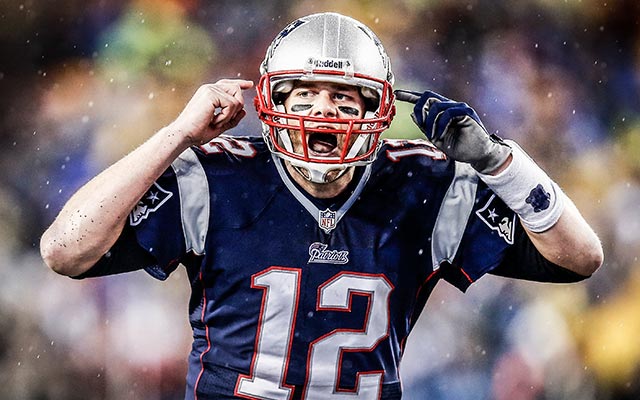Tom Brady said Thursday night that he doesn't "really have any reaction" yet to the Wells Report, which was released the day before and concluded "that it is more probable than not that Brady was at least generally aware of the inappropriate activities" of two Patriots employees who were deflating footballs.
The report went on to say that Brady refused to provide text messages and emails that might help in the investigation, which at the very least makes it appear that he has something to hide. On Thursday, Brady's agent, Don Yee, who ripped the report shortly after it was made public, explained the quarterback's decision to not cooperate with Ted Wells.
"Without really getting into my communications with my client -- I have to observe attorney-client privilege -- but if you're in a situation when it comes to disciplinary process when you're generally assigned guilt and asked to prove innocence," Yee told Anderson Cooper on CNN's A360 (via PFT). "That's number one. Proving innocence is essentially proving a negative, if you proclaim innocence. And so that's a very difficult situation to put yourself in.
"Second, with the text messages, the scope that they asked for is actually very, very wide. I probably should have made the letter public that we received from the NFL's lawyers. But in any event, if we would have provided the phone or the text messages -- you have to understand Tom is also a member of the union, the Commissioner's office actually does not have any subpoena power. If a prominent player were to provide all of their private communications absent a subpoena, that sets a dangerous precedent for all players facing disciplinary measures.
"Finally, any information we would have provided, and the Wells investigative team did ask us to go through Tom's phone on our own and provide them with information if we chose to go that route. But as you might surmise if we would have chosen to go that route, any information we would have given them, they probably would have had skepticism about anyway."
And that's Brady's right. But not cooperating with the investigation is considered conduct detrimental to the league and that could exacerbate any punishments for Brady. Also, as PFT's Mike Florio writes, while the NFL doesn't have subpoena power, it does have "absolute employment power over all players. Whatever it requests as part of its investigation, the NFL gets. If the NFL doesn't get it, a separate basis for discipline arises."
It's unclear what sanctions Brady may face, but at least one report thinks the future Hall of Famer could be suspended for up to one year.






















